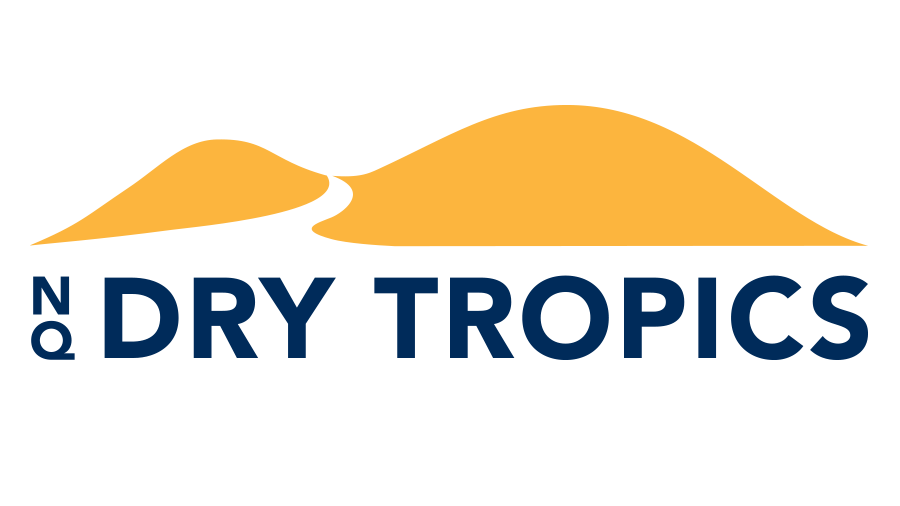Protecting the landscape… and the NQ Gas pipeline


Undertaking site visits along the North Queensland Gas Pipeline (pictured, right) between Newlands district, near Collinsville and Woodstock, near Townsville, are from left, Caitlin Mill, Field Officer, Mary River Catchment Coordinating Committee; John Day, Soil Conservation Consultant, Mary River Catchment Coordinating Committee; Cameron Jackson, NQGP Pipeline Operator – Worley Power Services (who has since moved on to work with a different company); and Bernie Claussen, Soil Conservation Officer, NQ Dry Tropics.
A spin-off from a collaboration between Worley Power Services and NQ Dry Tropics has been the upskilling and mentoring of staff in a range of erosion mitigation techniques, including low-cost interventions for small-scale erosion.
A remediation plan was developed for 10 erosion sites along a 200km stretch of natural gas pipeline between Newlands, near Collinsville and Woodstock, near Townsville. Soil erosion expert John Day, from the Mary River Catchment Coordinating Committee (MRCCC), was engaged to design a plan for each site.

Worley Power Services has a field services agreement with North Queensland Gas Pipeline to operate, maintain and carry out minor construction activities on the pipeline. The pipeline runs from Moranbah to the Townsville Power Station to be used by industrial users in Townsville. It traverses three catchments, the most significant being the Bowen, Broken, Bogie (BBB) catchment.
NQGP Pipeline Operator – Worley Power Services, Cameron Jackson, said spending a week in the field with John Day had produced an invaluable educational spin-off.
“I learned a lot about erosion prevention and different solutions used to fix gully, streambank and road erosion to improve the condition of the land, and reduce fine sediment flowing into waterways and out to the Great Barrier Reef,” Mr Jackson said.
“It was also good to learn more about how to improve ground cover to reduce runoff, and to target weeds and not harm groundcover.
“Having access to specialist knowledge made me realise we could do better.
“To be able to examine principles for preventing erosion and discuss practical ways to repair and mitigate erosion has led to some changes being made to maintenance methods on some sites.
“Interventions like stick dams and leaky weirs would be appropriate in some cases, a low cost intervention where there’s early signs of erosion.
“Being responsible for all inspections, monitoring and maintenance, it’s in our best interest to ensure best practice erosion and sediment control measures are being achieved.
“The field trip also reiterated how our work is critical in helping stop fine sediment flowing to the reef.
“It helped cement the important role Worley plays in looking after the environment while ensuring the integrity of the pipeline, and working with farmers to ensure their productivity is not adversely affected.
“To be able to share this information with others in the organisation leads to a better informed and more knowledgeable workforce.”
Worley Power Services Project Supervisor – North Queensland Gas Pipeline, Anatol Stremouchiw agreed and said on-going learning played an integral part in ensuring best practice erosion mitigation.
“Every effort is made to ensure drainage, erosion controls and sediment containment structures are well maintained and functioning correctly,” Mr Stremouchiw said.
“Having a remediation plan, produced by John Day with NQ Dry Tropics’ help, is part of that.
“Access to expert and technical knowledge, and science, leads to recommendations to ensure minimal impact to the environment.
“The priority is to monitor and maintain the integrity of the pipeline, to reduce the risk of erosion when carrying out maintenance and mitigation works, cost effectively.
“This includes upskilling people to ensure a set of standards is established for common erosion mitigation techniques.”
The Landholders Driving Change project is engaging with non-grazing land managers to get involved with the project in ways that will support a culture of stewardship, enabling all land managers (grazing and non-grazing) to contribute to landscape wide change and improved reef water quality.

Pictured, clockwise, from left, are: Caitlin Mill, Field Officer, Mary River Catchment Coordinating Committee; Cameron Jackson, NQGP Pipeline Operator – Worley Power Services (who has since moved on to work with a different company); John Day, Soil Conservation Consultant, Mary River Catchment Coordinating Committee; and Bernie Claussen, Soil Conservation Officer, NQ Dry Tropics.

Cameron Jackson, NQGP Pipeline Operator – Worley Power Services (who has since moved on) nominated this pretty site has his favourite along the length of the pipeline.

NQGP Pipeline Operator – Worley Power Services Cameron Jackson, left, with ohn Day, Soil Conservation Consultant, Mary River Catchment Coordinating Committee inspecting an erosion feature along the pipeline.

NQGP Pipeline Operator – Worley Power Services Cameron Jackson inspects a drain at a site near the pipeline.
